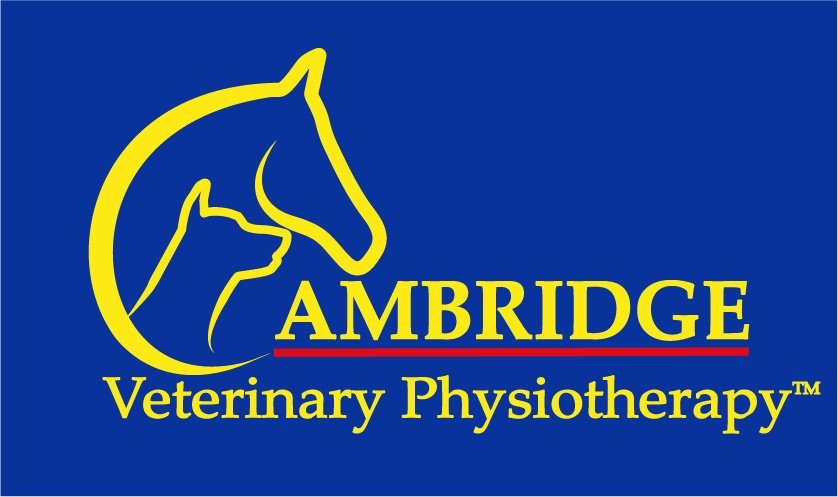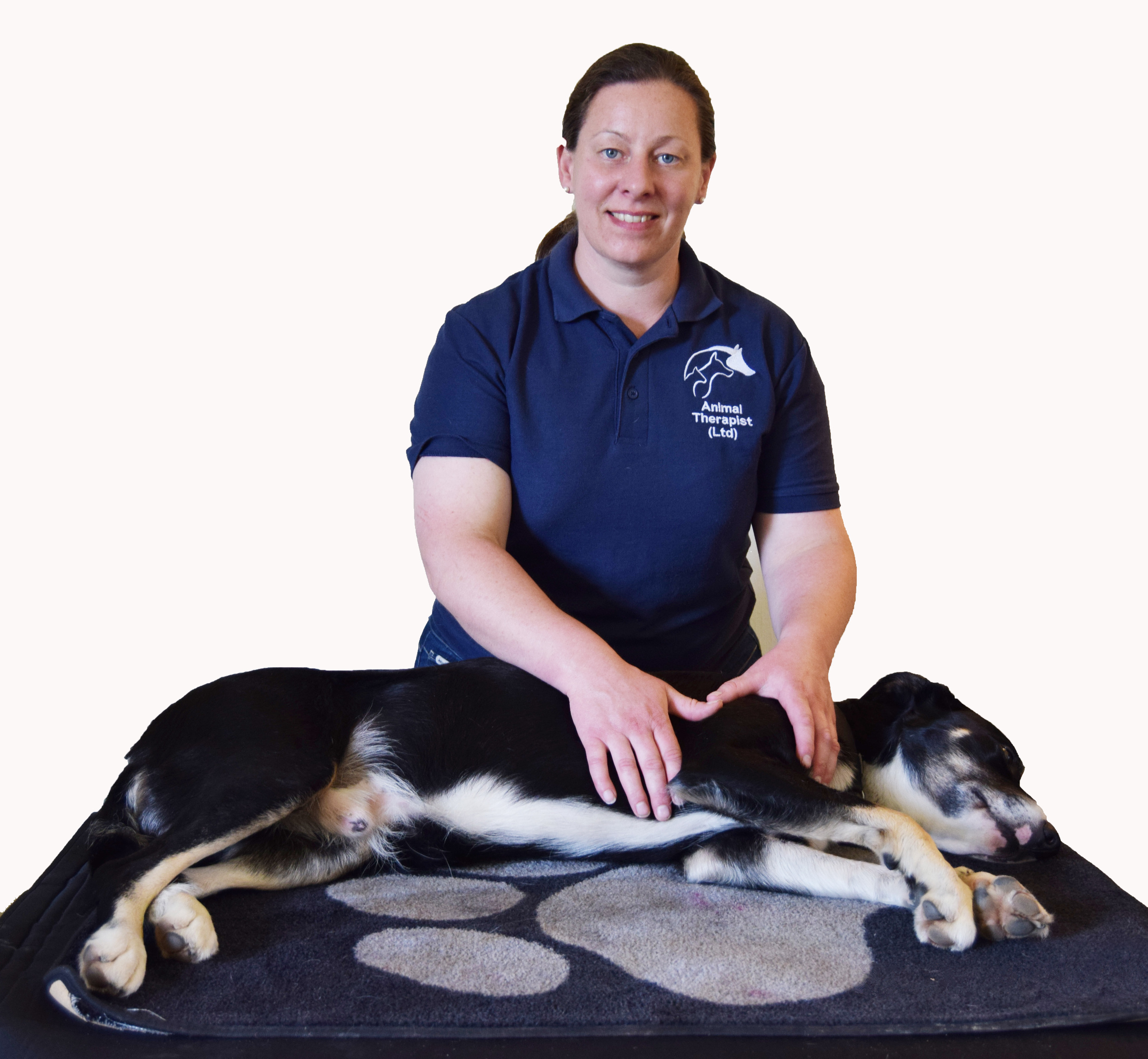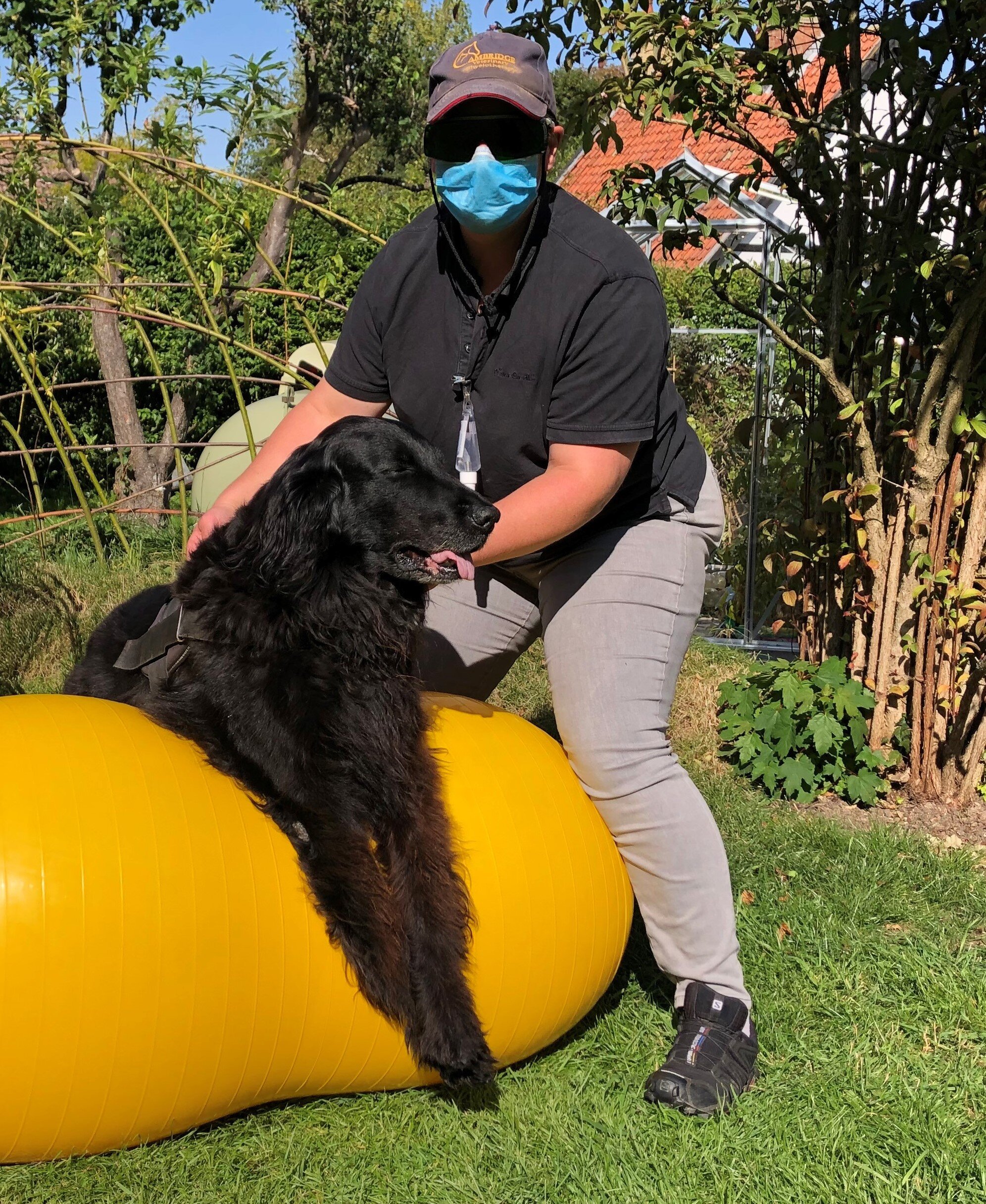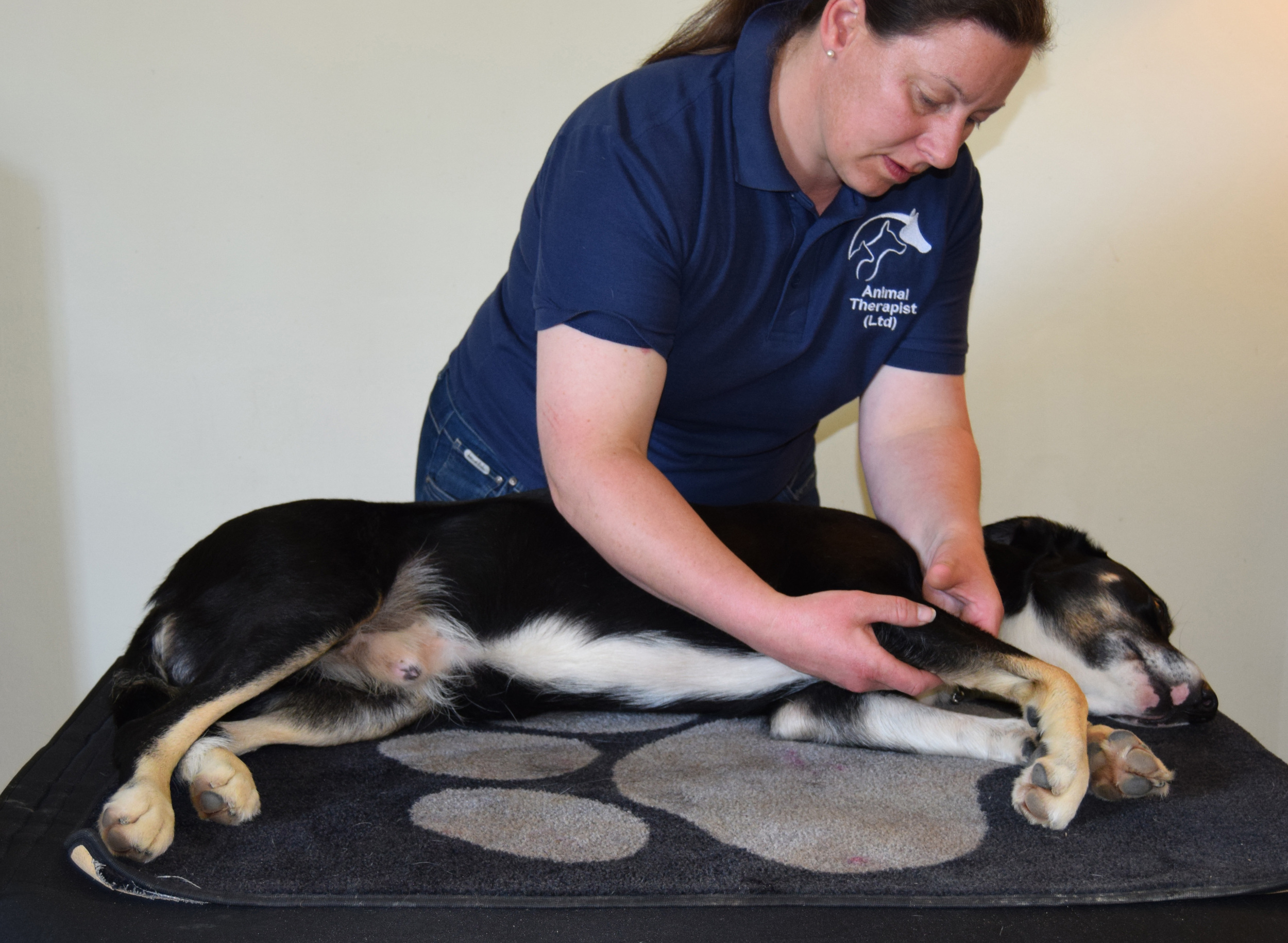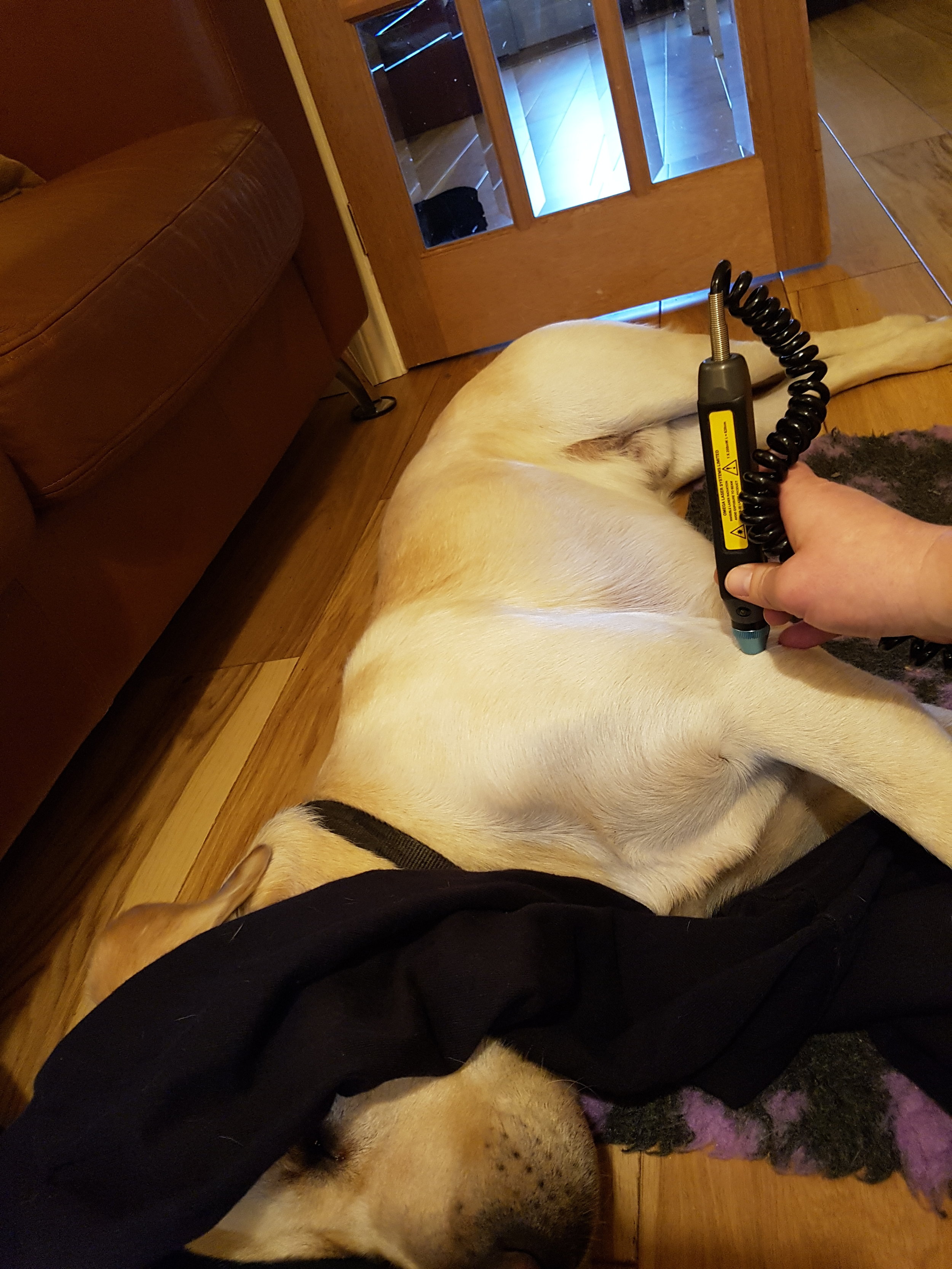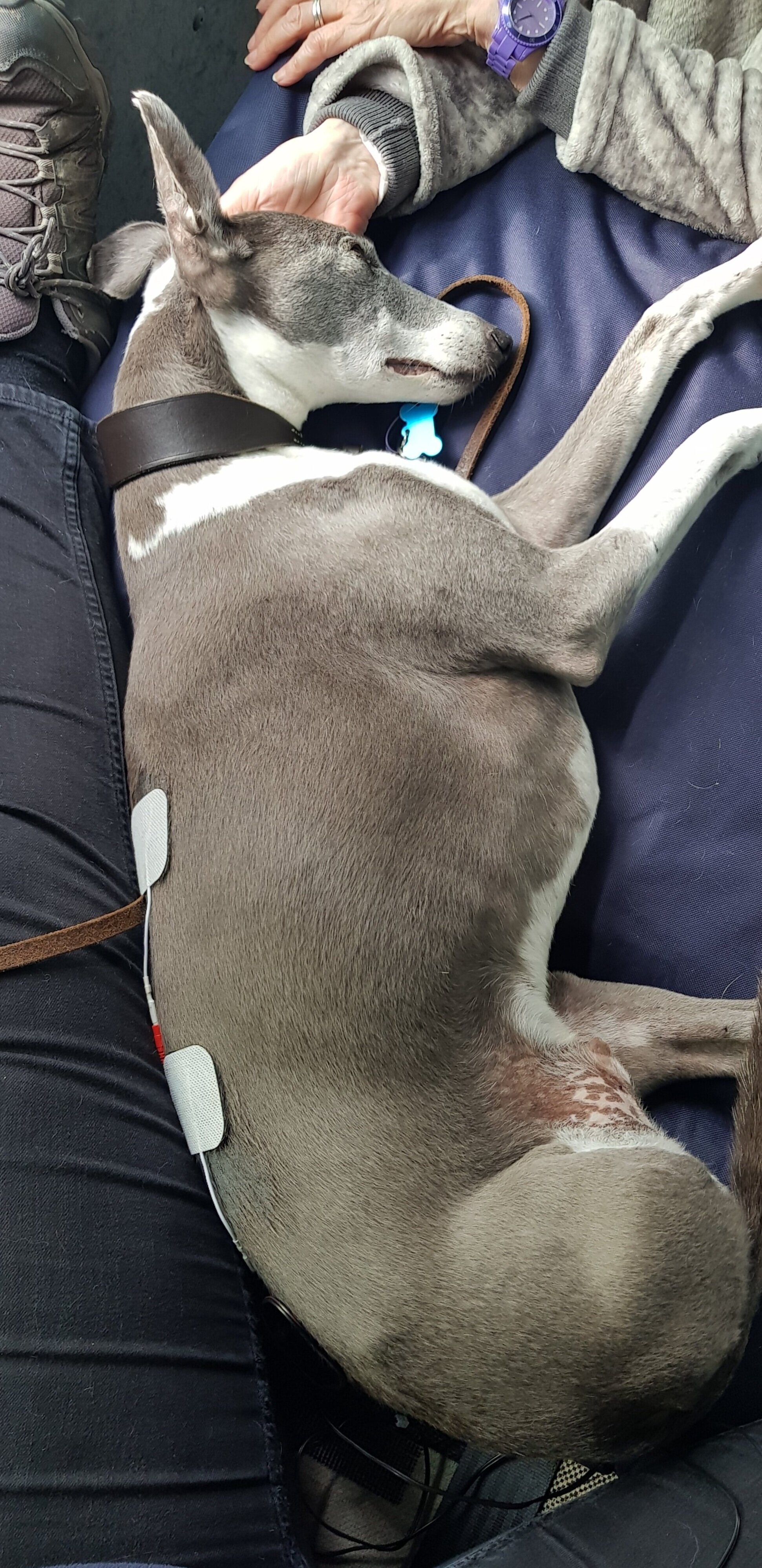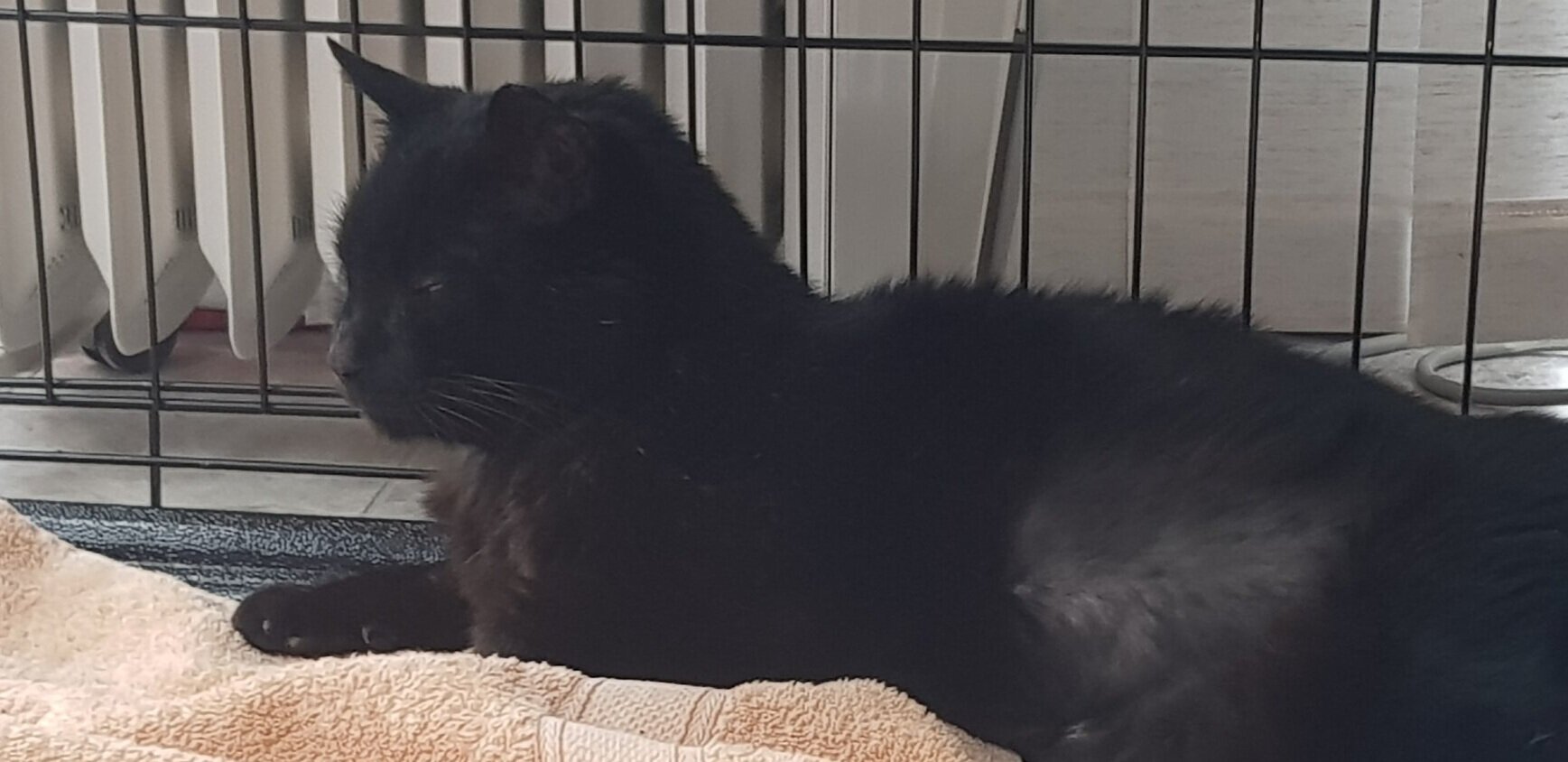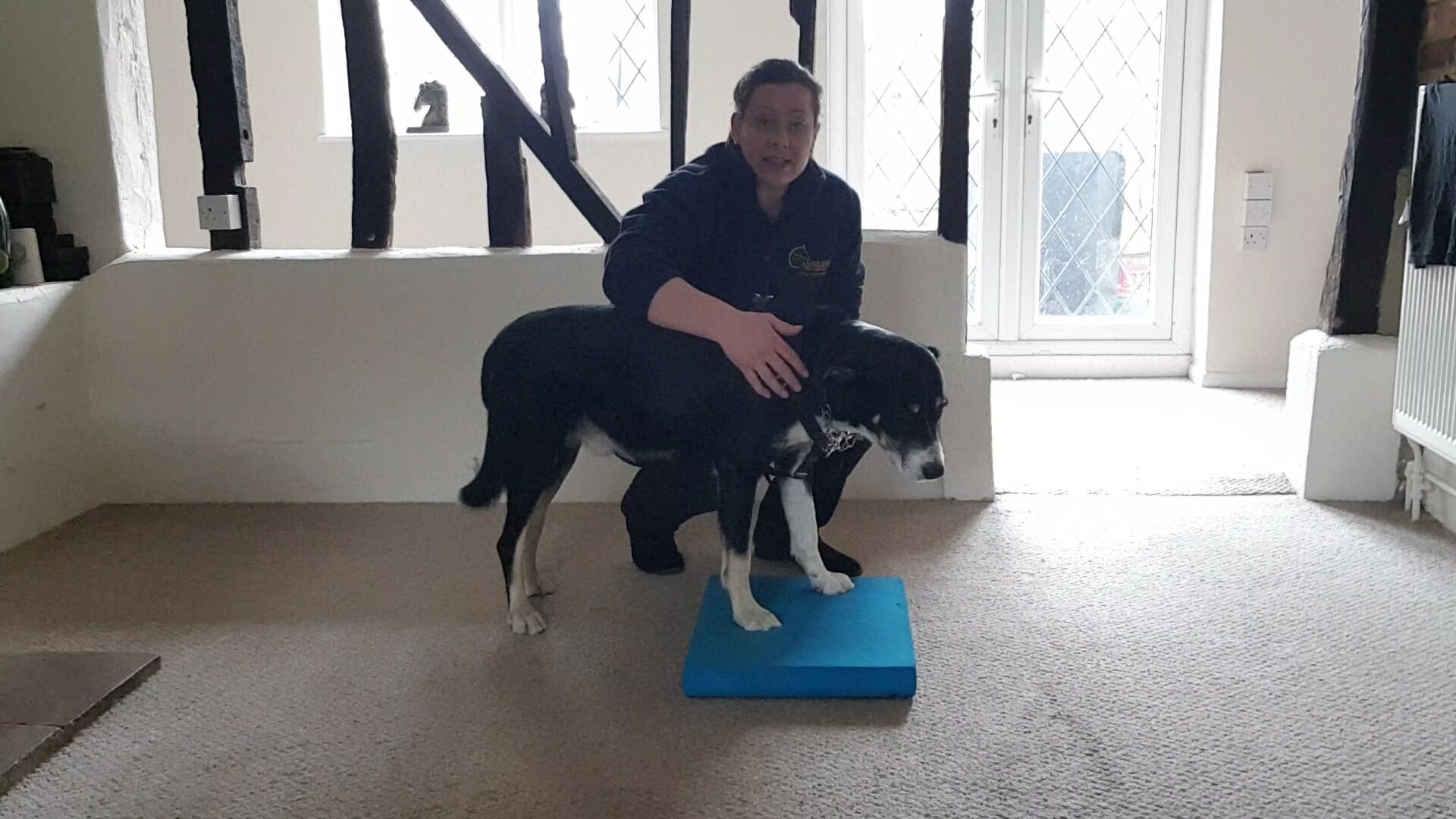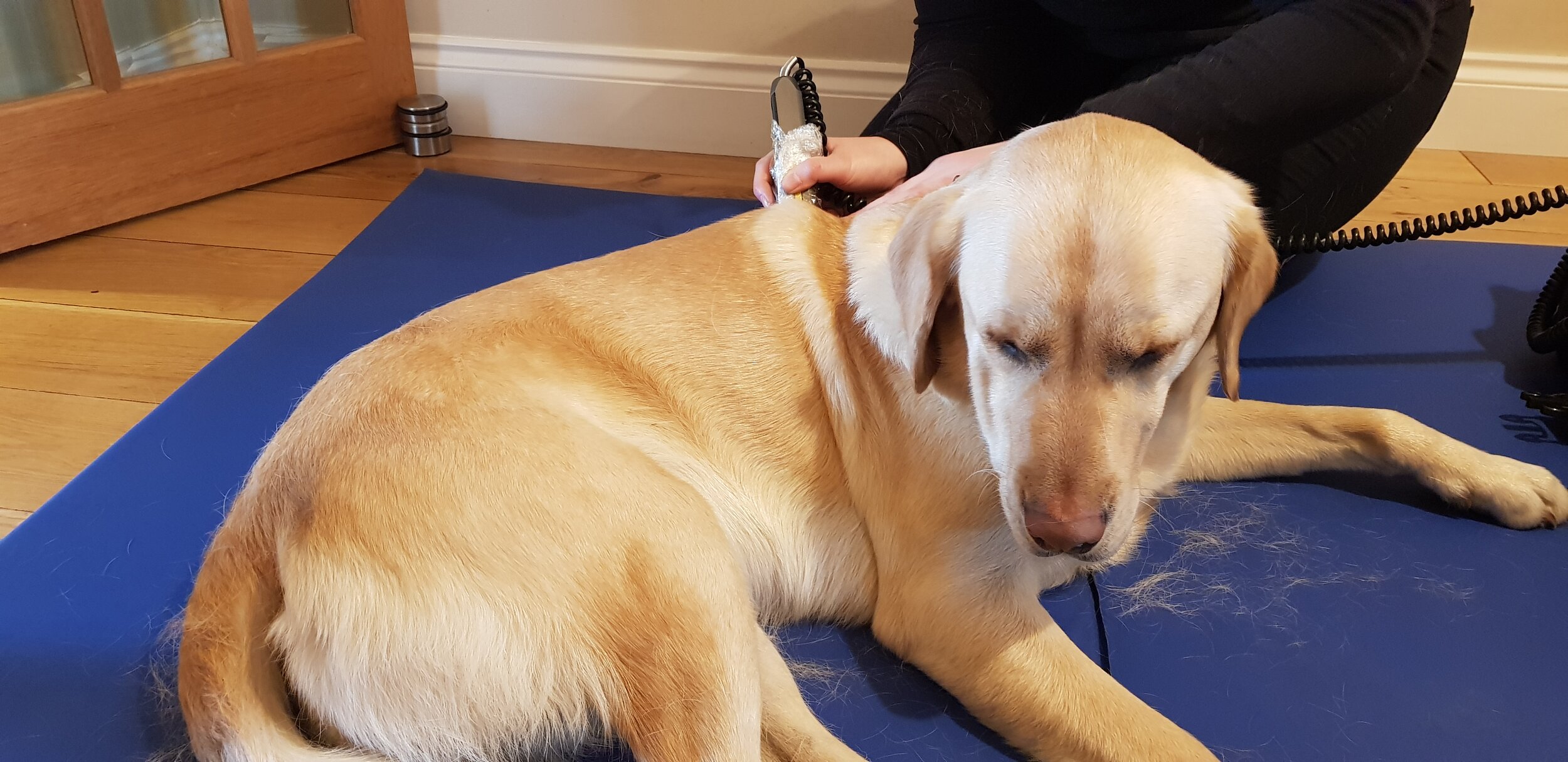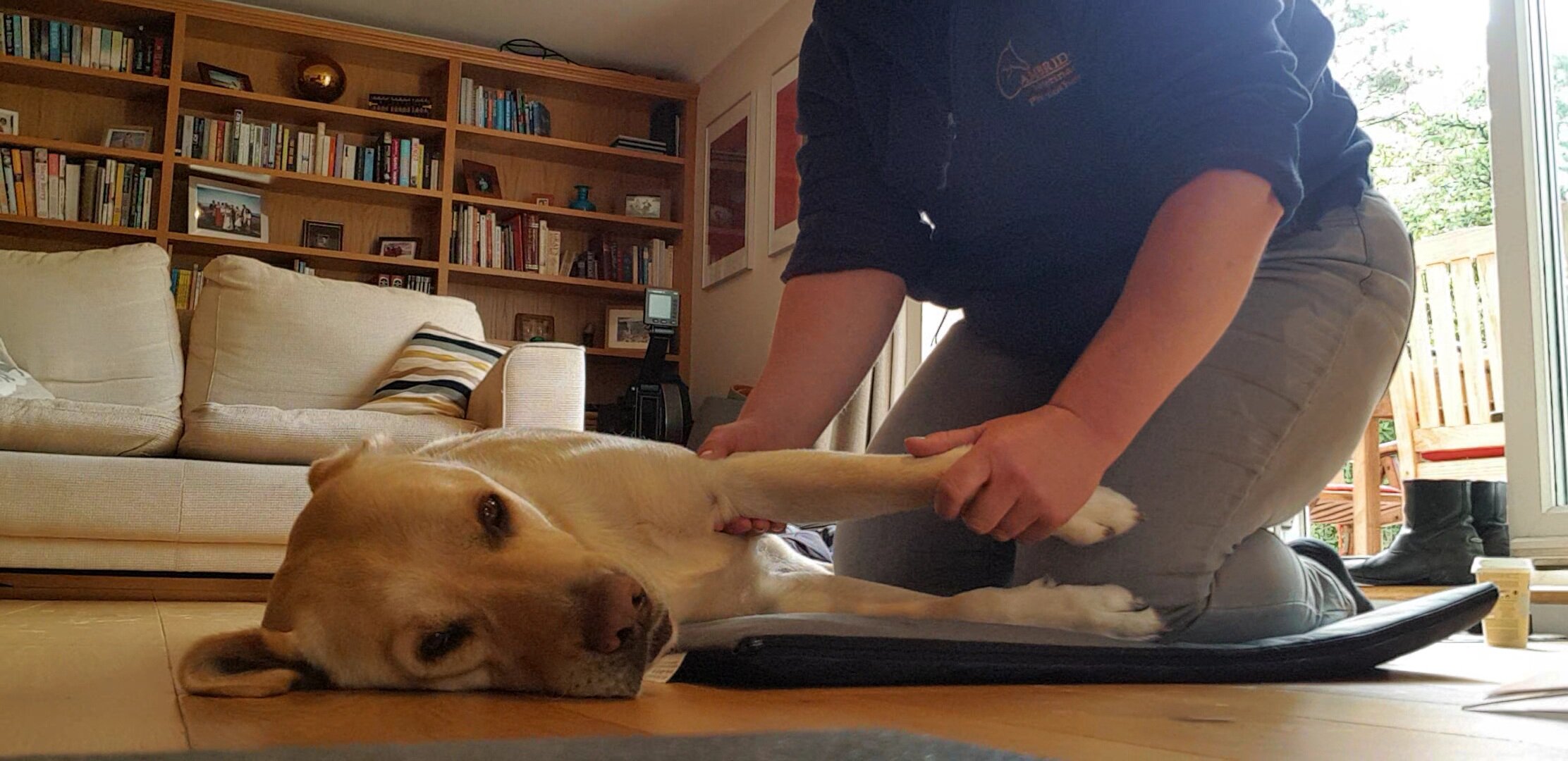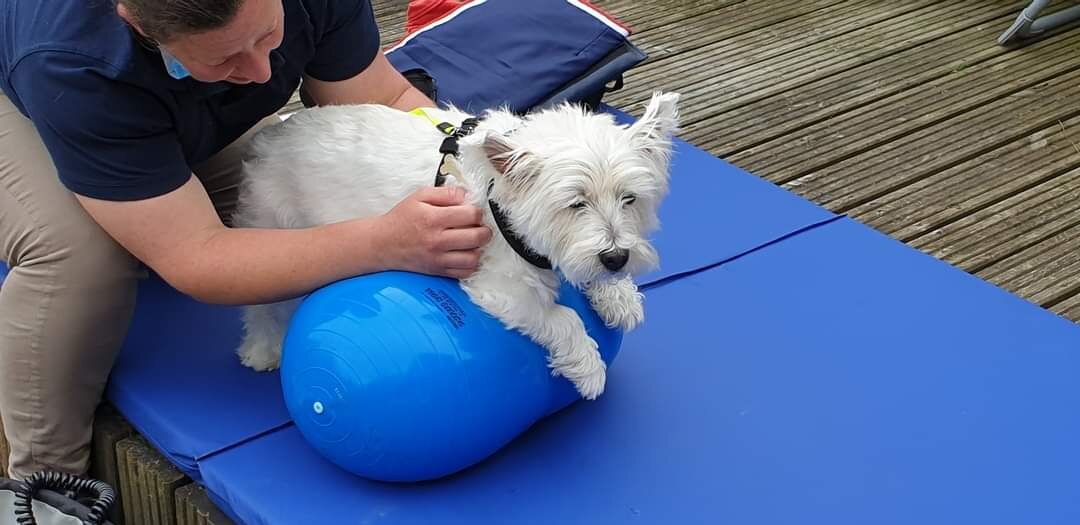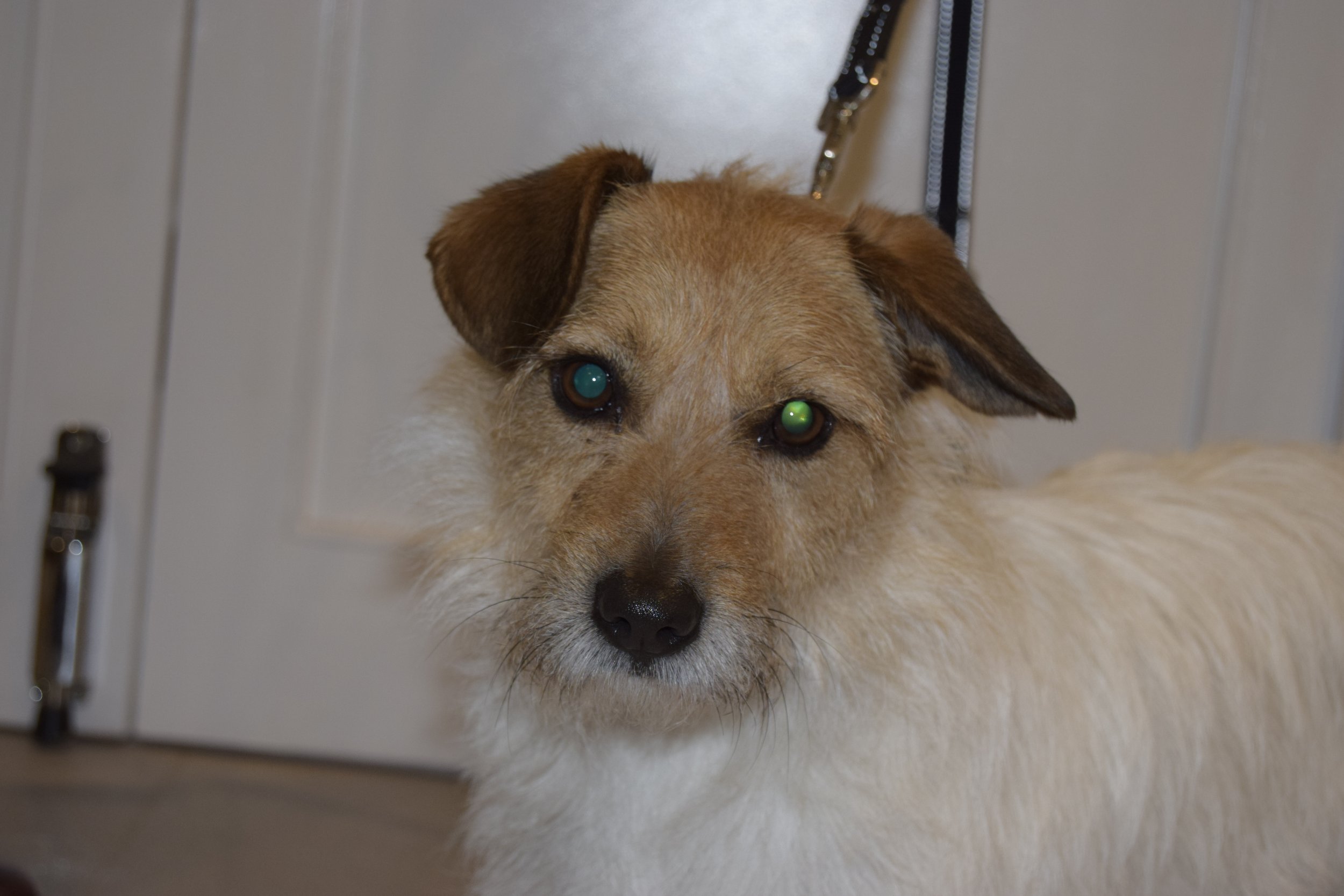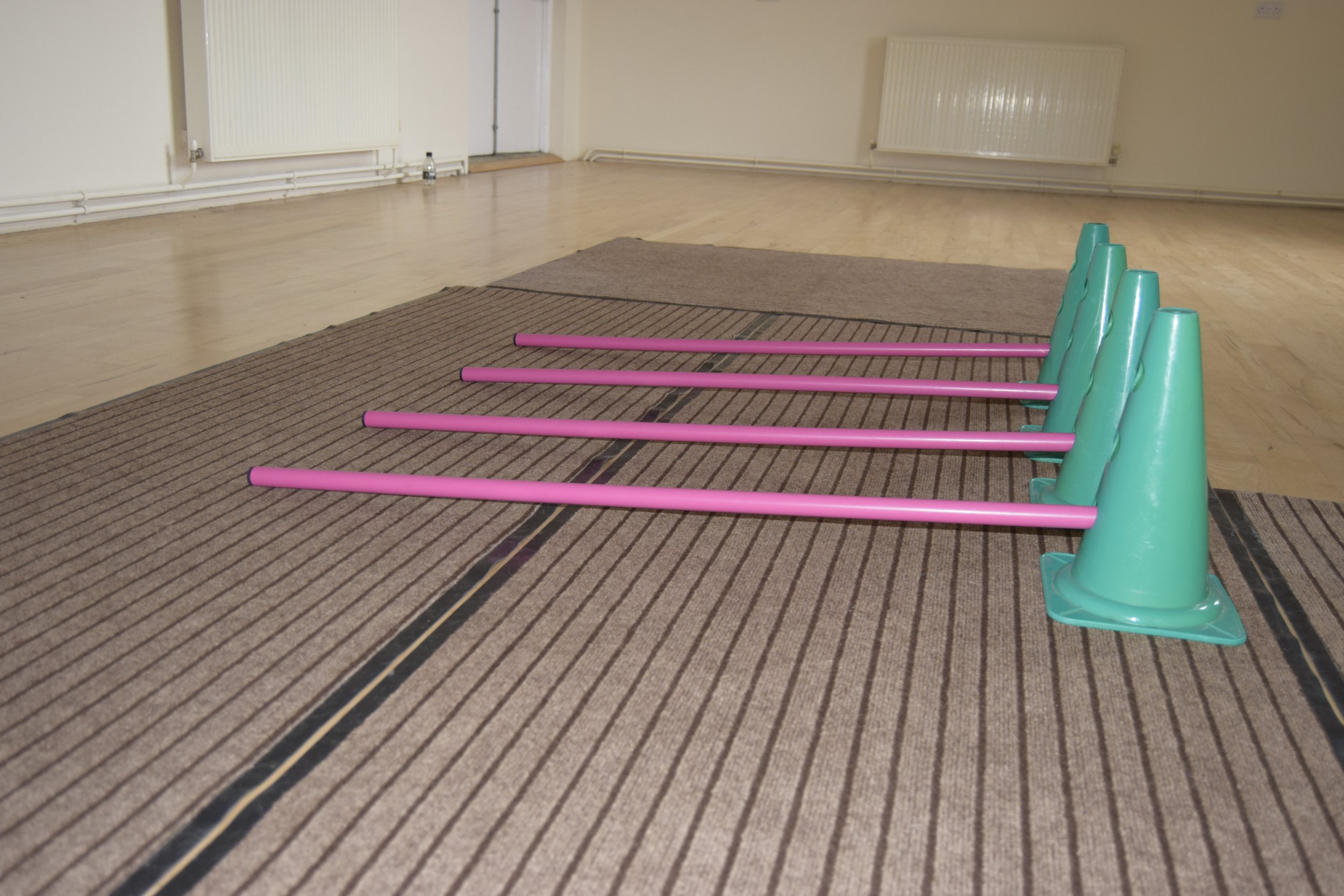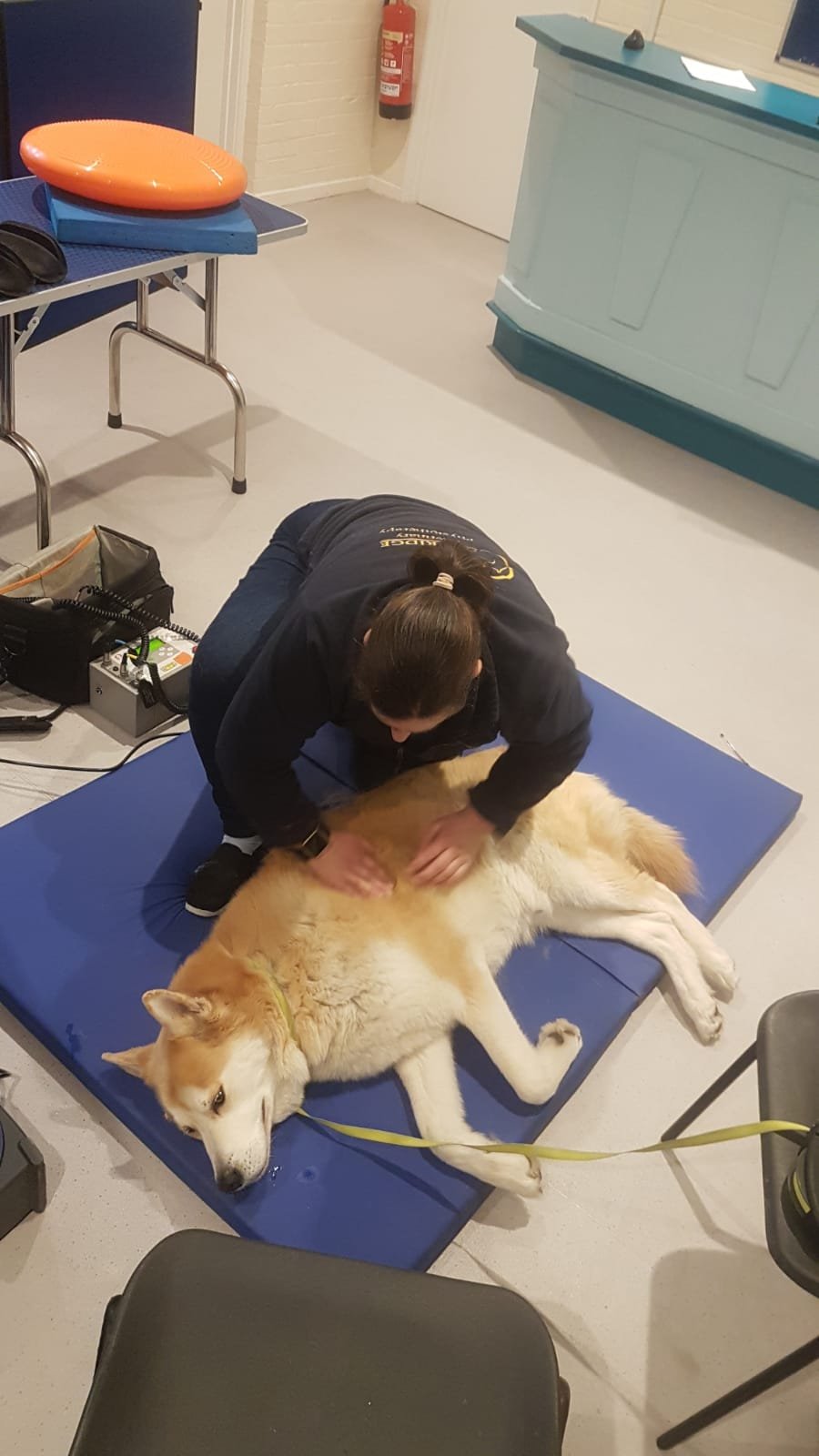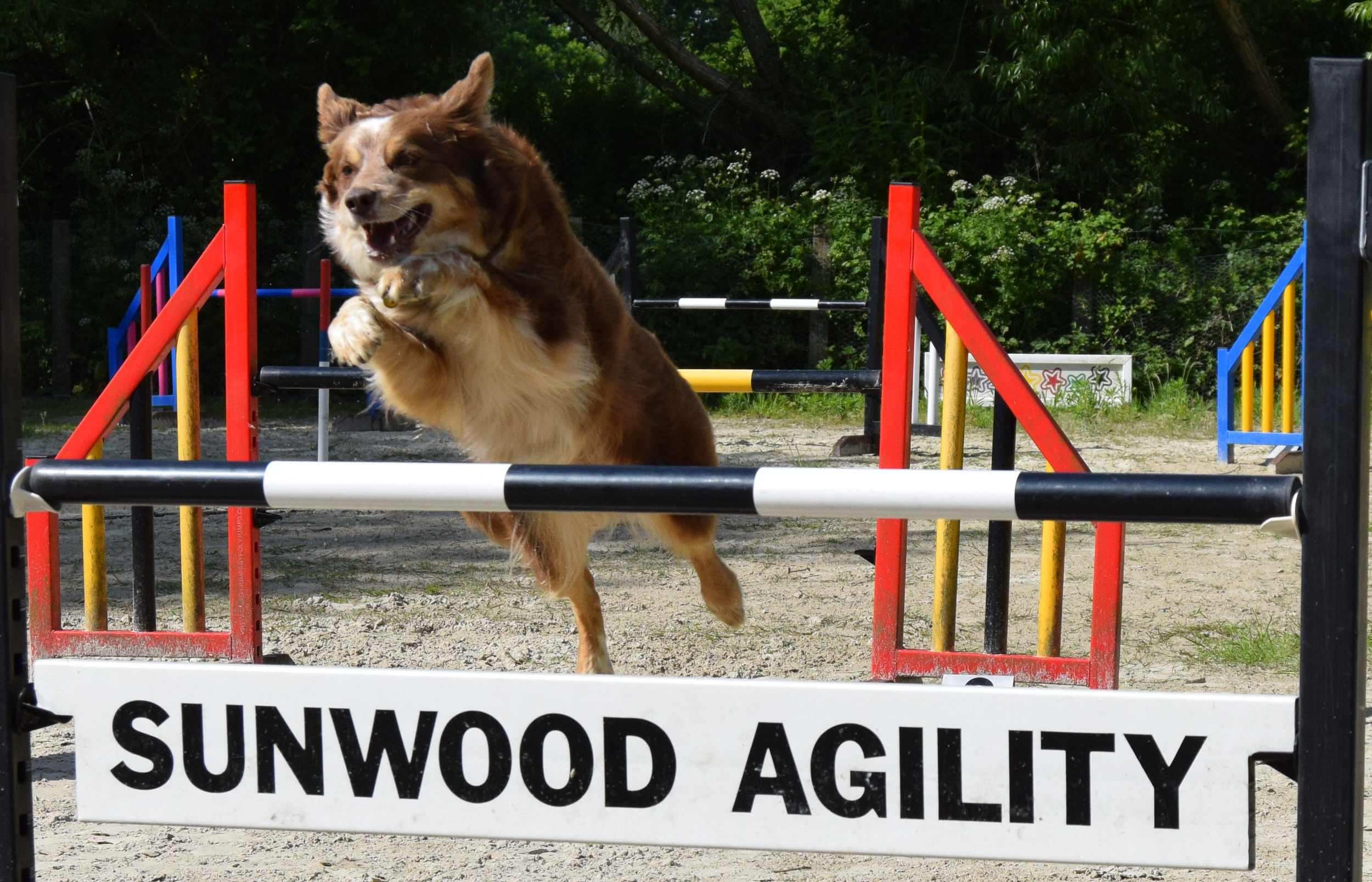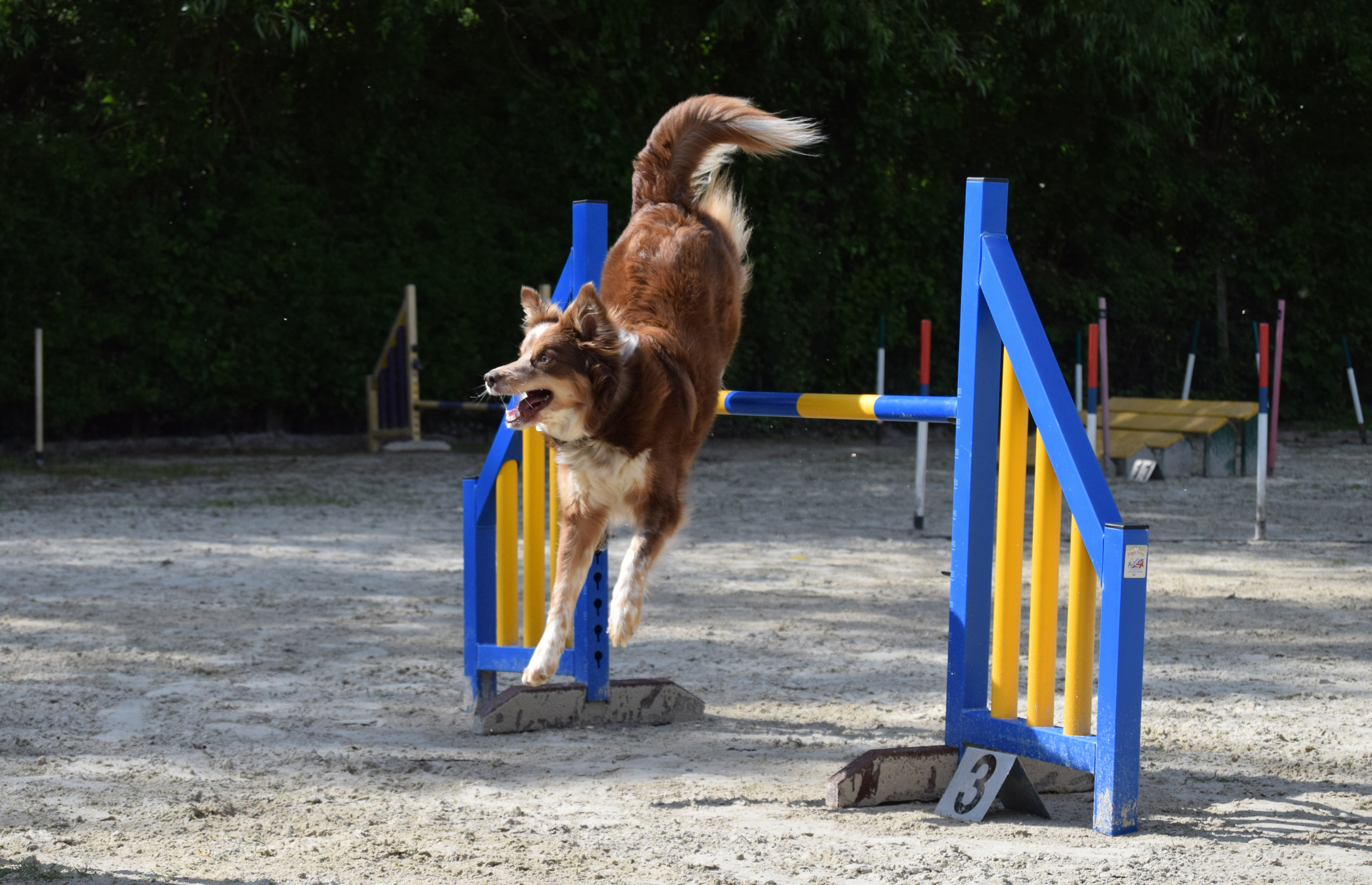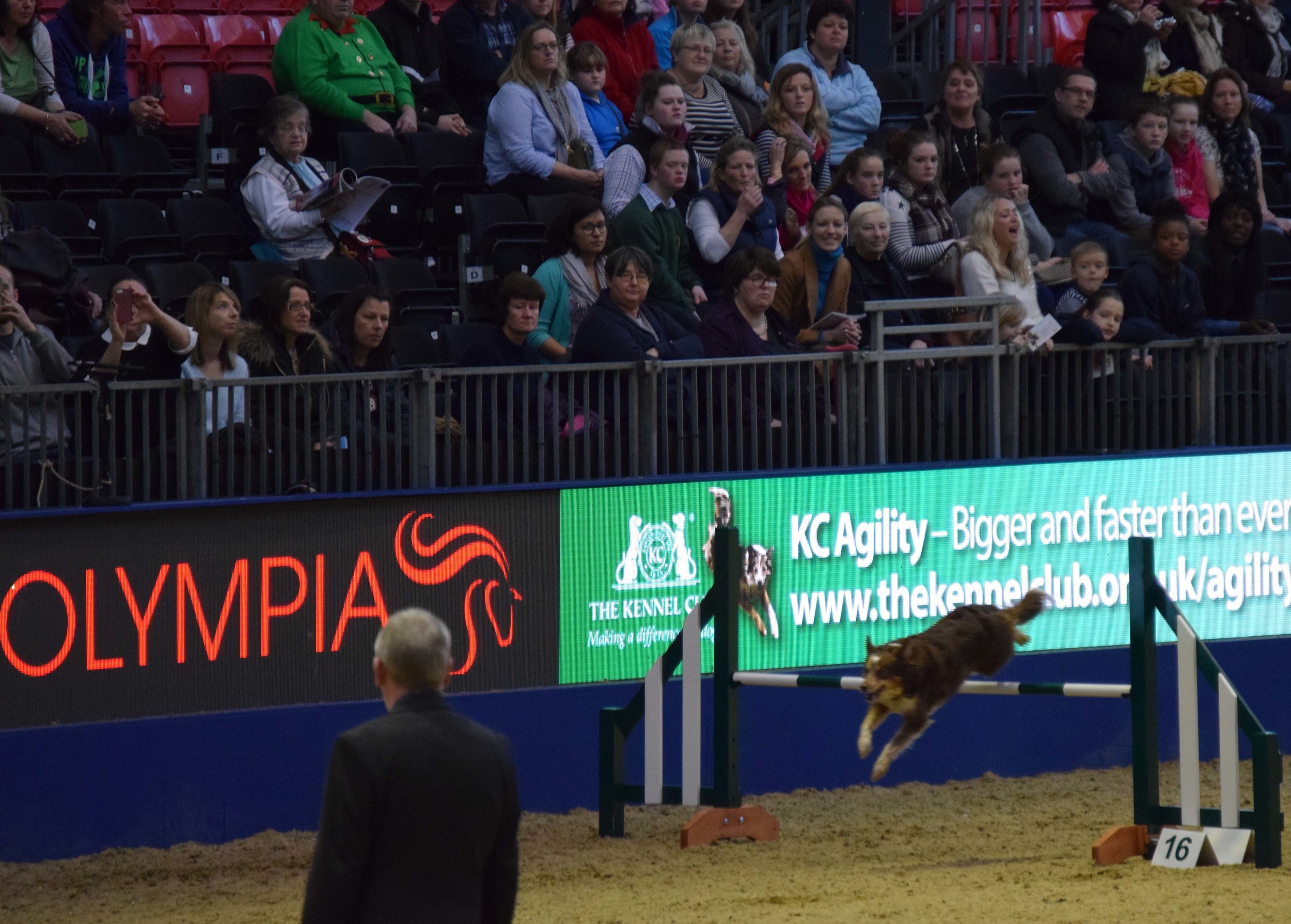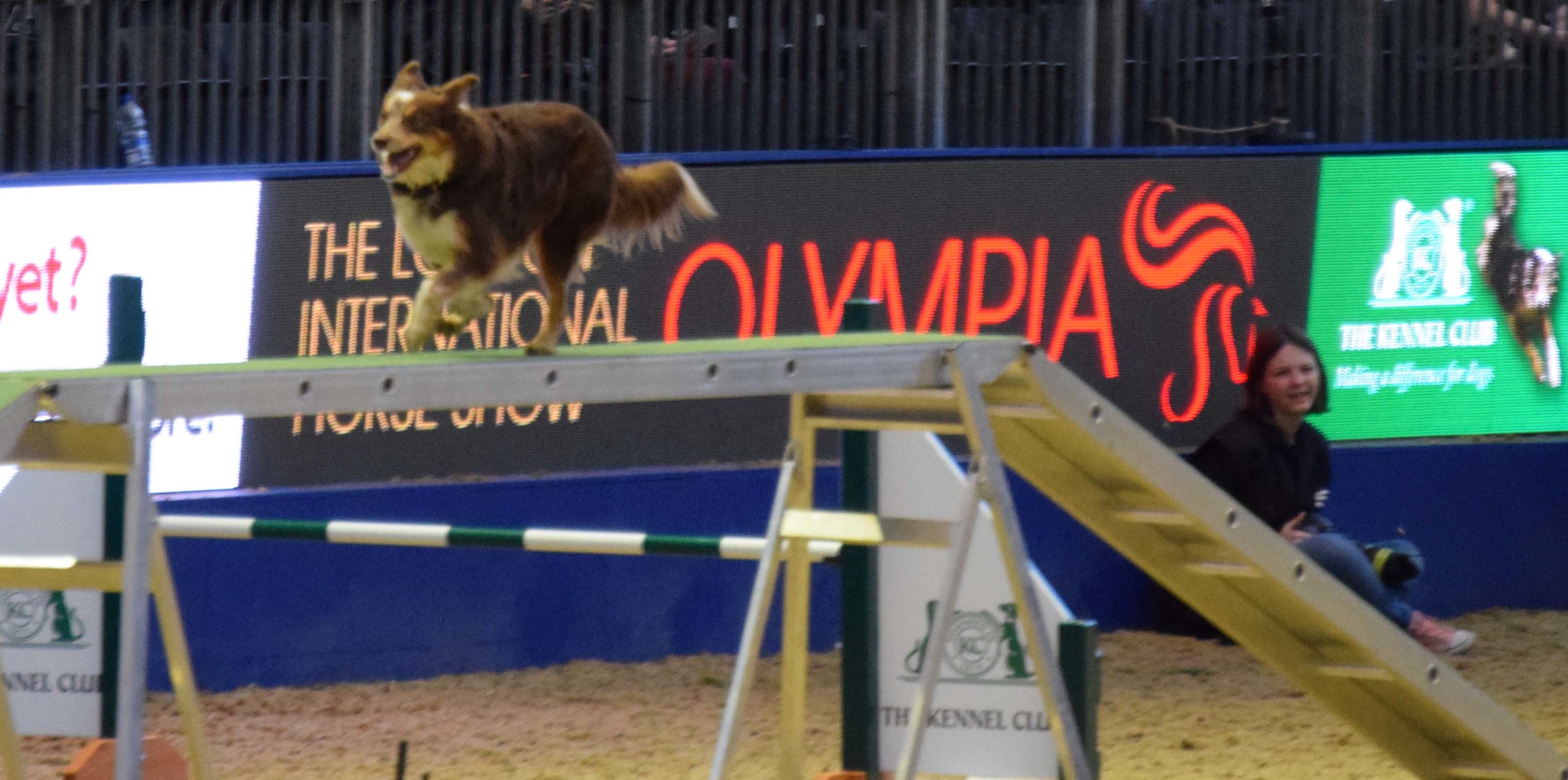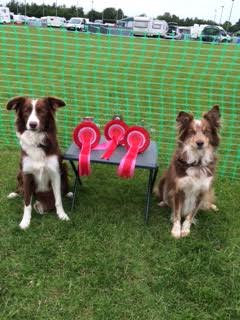Canine Physiotherapy - maintenance, performance, remedial and rehabilitation care
Pippa Winkworth (MSc Vet Phys) - Co-Chair of the National Association of Veterinary Physiotherapy (NAVP) and fully registered member of IRVAP & RAMP. Over 20yrs experience in therapy, we can offer a high standard of veterinary physiotherapy care.
A full musculoskeletal assessment and if appropriate a dynamic assessment will be carried out. This will form the clinical protocol. Veterinary Physiotherapy techniques are used to;
reduce pain,
assist tissue healing (post injury / surgery),
improve mobility
improve performance
As well as manual therapy, where appropriate we use a number of electrotherapy modalities, such as a Low Level Laser & Neuro-Muscular-Electro-Stimulation (& many more).
By law (the Veterinary Surgeons Act 1966), Veterinary Physiotherapists are required to gain consent/referral for remedial conditions (when your vet is currently treating your animal for a condition), which can be done by using the, ‘Remedial Consent Form’ - see gold buttons below. This will also be required when you are intending to make an insurance claim. Each insurance policy is different - please check that physiotherapy is covered by your insurance company before booking any appointments.
You can either print off the ‘printable version’ or
direct your vet to this website to complete the digital version by emailing them the link: https://www.cambridgevetphysio.com/small-animal
Veterinary consent is not required for maintenance or competition care; however, communication with your vet is part of the physiotherapy care programme.
REMEDIAL CONSENT FORMS:
book a home visit:
Please call 0771 5111072 or email cvp@cambridgevetphysio.com to register - you will then be given access to the Small Animal Owners Page where you can book and much more.
BOOKING FOR CLINIC in West Wratting
Problems can occur in dogs/cats for many reasons including the following:
• Traumas and Accidents: falls, collisions, slipping, fighting
• Repetitive Activities: jumping on or off objects (car, sofa, agility)
• Sport: Racing, Agility dogs, Fly ball, etc
• Breed Related Issues: Some conditions may be genetic / breed related such as:
Dogs with long backs are prone to disc problems (e.g. Dachshunds);
hip dysplasia (e.g. German Shepherds);
cervical vertebral instability (e.g. Weimaraners);
osteochondritis dissecans which can affect the shoulders and elbows (e.g. Labrador Retrievers)
• Lameness: From arthritic pain, hip dysplasia can cause the dog to compensate their gait, which can develop into secondary problems as they will try to compensate.
• Post surgery
Copyright © 2023 Animal Therapist Ltd. All rights reserved.
Therapy can assist with many conditions and can help to improve your dogs quality of life. Picking up on early warning signs may prevent issues getting worse and developing into a more serious problem.
What a few of my clients have been up to....
Copyright © 2023 Animal Therapist Ltd. All rights reserved.
The aim of the therapy sessions is to maintain healthy biomechanics and wellbeing.
